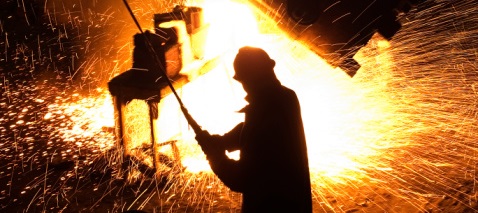Power station must be built
The UK faces the very real threat of power shortages in the coming years – and that’s why following through with plans to build the Hinkley Point C nuclear power station is critical if Britain is to keep the lights on in the future.
But last week’s shock vote in favour of the UK leaving the EU has raised doubts in many minds about continued investment in the power station, which is being mainly financed by French company EDF and whose construction has been plagued by delays well before the Brexit vote.
EDF chief executive Jean-Bernard LĂ©vy put these concerns to rest when he said that the company would press on regardless of the EU referendum vote.
“Our business strategy is not linked to Great Britain’s political affiliation with the European Union, so we have no reason to change it,” he said.
“Market analysts believe that the pound will drop, but if the currency falls, the economy becomes more competitive. I think we need to adapt to economic conditions and to exchange rates, which can evolve.”
The power station was first scheduled to start operating in 2017, but protracted delays have meant that the start date for electricity generation has been put back to 2025.
EDF says it is poised to make its final investment decision (FID) this year for the Somerset plant, and Unite along with trade unions Ucatt, Prospect, and the GMB are urging the French company to give the go-ahead soon so that construction can finally start.
“The UK trade unions are 100 per cent in support of Hinkley Point C and believe that it is vital to make a final investment decision in a timely fashion soon after the consultation process (between EDF and the French unions) is completed (on 4 July),” the unions noted in a letter to EDF Energy chief executive Vincent de Rivaz.
“Nuclear new build is already behind the curve; we cannot afford further delay and it is vital for EDF to make a final investment decision now,” the unions added.
“From an energy perspective, the UK needs the electricity. We are rapidly losing capacity and this process will continue as the UK coal stations and nuclear stations reach the end of their operating lives.
“At the same time, we are committed to making a transition to a carbon-neutral balanced energy policy in the UK, including nuclear and renewables.”
Indeed, Hinkley Point’s future power output alone will generate 7 per cent of the UK’s electricity needs – its place in the energy mix is vital at a time when coal-fired power stations will be phased out by 2025 and older nuclear plants are being decommissioned.
Renewables such as wind power, while an important part of the country’s energy supply, simply don’t have the capacity to generate enough electricity to meet UK demand.
“Wind power cannot compete, in the sense that the wind doesn’t blow when it’s not cold and you can’t store electricity,” said Unite national officer for energy Kevin Coyne.
“Coal and nuclear together provide well over half of the UK’s electricity,” he added. “And so if you don’t have new power stations, how are you going to replace that? The only other source is gas, but gas is a carbon emission.”
Unite and other unions highlighted in their letter to EDF Energy that “much is at stake in both France and the UK,” including “jobs, skills, social dialogue, industrial capability and prosperity into the future.”
Template
The unions laid out a template of what needs to happen for the future Hinkley Point workforce.
These include jobs based on direct employment; a radical new approach to recruitment to deliver a diverse workforce to attract those who have historically not been well-represented in engineering and construction, notably women; and high-quality terms and conditions of employment for union members.
“It would be a tragedy, in both France and the UK, if all this work and the extraordinary opportunities it provides were to be lost,” the letter read.
“The moment to make the decision is upon us and we have a genuine fear that any further delay will lead to the unravelling of all that we have fought so hard to achieve.”
Coyne explained that construction of the plant alone will be a wellspring of jobs for the local Somerset economy.
“The construction of the plant is based upon 5,000 jobs at any one time, with 22,000 over its six-year lifespan,” he said.
The most exciting prospect of Hinkley’s construction and the jobs it will generate is that these jobs have been negotiated by Unite and other unions under what Coyne calls “some of the best agreements we’ve ever had.”
“They provide for a huge quality of pay,” he explained. “The terms and conditions are good, and trade unions are absolutely central to them. There’s a clause of no blacklisting and specific methods which ensure that it doesn’t happen – this is very important to us. There’s a pension scheme which traditionally you don’t have in construction.”
“And those are just snapshots,” he added. “There’s so much in the agreements that are very impressive.”
Coyne added that the final investment decision by EDF Energy in Hinkley Point “will be the first litmus test, following the Brexit vote, that much-needed investment in large infrastructure projects is still coming on stream.”
Ucatt acting general Brian Rye agreed, saying that the “final go-ahead on Hinkley will demonstrate whether foreign-owned companies are still prepared to invest in the UK. The government needs to ensure that they get this deal over the line.”
GMB national secretary Jim Bowden argued “our energy needs have not changed since last week.”
“The UK must have a balanced, low carbon energy mix, including renewables, gas and nuclear power if we are to keep the lights on, our homes heated and the economy functioning,” he said.
 Like
Like Follow
Follow


